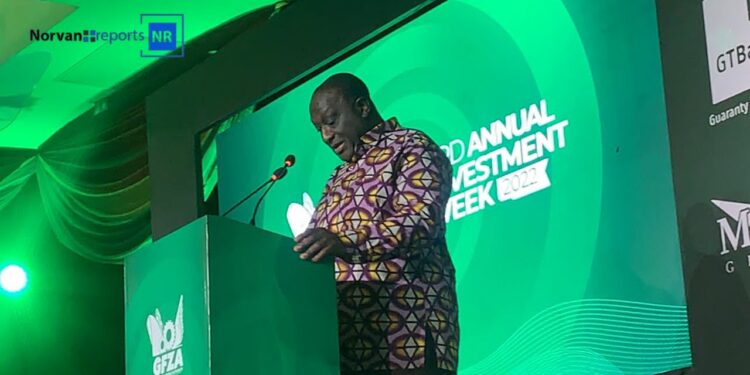Gov’t approves ‘Components Manufacturing Policy’ to support local production of spare parts – Trade Minister
A new policy known as the “Components Manufacturing Policy” has been approved by government.
The new policy expected to kick-start in 2023, is aimed at supporting the local production and supply of components and spare parts for the country’s budding automotive industry.
Making the disclosure while delivering a speech at the 3rd Annual Investment Week Forum held by the Ghana Free Zones Authority (GFZA) on Wednesday, December 7, the Trade Minister noted that through the new policy, it is expected that the automotive industry will have access to ready and locally manufactured spare parts.
“The Automotive Assembly Programme presents investment opportunities for companies interested in this sector (automotive sector). The policy will be launched, and implementation will commence in 2023,” he added.
Speaking further at the Forum, the Trade Minister called on the GFZA to focus on championing export-led industrial growth in the context of AfCFTA and world trade, asserting the Africa Continental Free Trade Agreement (AfCFTA) provides an opportunity for Ghana to increase its export to other African countries through the creation of a single market thus, boosting intra-African trade.
Further adding that, the Ghana AfCFTA National Coordination Office is working strenuously to ensure the smooth export of products from Ghana to other African countries.
Touching on the creation of green SEZs in the country, the Trade Minister noted that the Trade Ministry is currently working on a Special Economic Zones Policy given the fact that most countries in Africa have shifted from pure export processing zones to special economic zones which is a broader concept in industrial development.
“This is an upgrade of the free zone programme to ensure that we are abreast with the trends. Development of other industrial parks and special economic zones will be designed to have the full supply chains and interrelated industries to create synergy within the zones,” he added.
The Trade Minister speaking further at the Forum, made the following recommendations to help boost the development of SEZs in Ghana:
- economy on SEZs development, global trade, and supply chains.
- Deployment of international standards in implementing SEZ projects
- Value creation in SEZs, building stakeholders resilience
- Targeting SEZs as a catalyst for economic corridors and industrial upgrading
- Framing a road map to attract quality FDI, industrial upgrading and green energy transition
- Integration of African SEZs in underlying development features, mobilizing financial resources, deepening continental economic integration, and promoting inclusive growth and sustainable development
- Championing the role of African SEZs in facilitating regional integration through AfCFTA
- A critical update on the ongoing process of drafting and implementing AU SEZ Model Law along with the AfCFTA SEZ Regulation
- Ensuring Innovation driving new policy reform to improve SEZ performance
- Skillful leveraging on SEZ business models and market forces to support technological transition and sustainable development
- Involvement of SEZ ecosystem to support green energy transition and establish inclusive and innovative frameworks
- Prioritizing digital transformation to enhance productive capacities and sustain long-term competitiveness of African SEZs
- Investment in capacity building and peer to peer learning to encourage expertise transfer and industrial upgrading.








